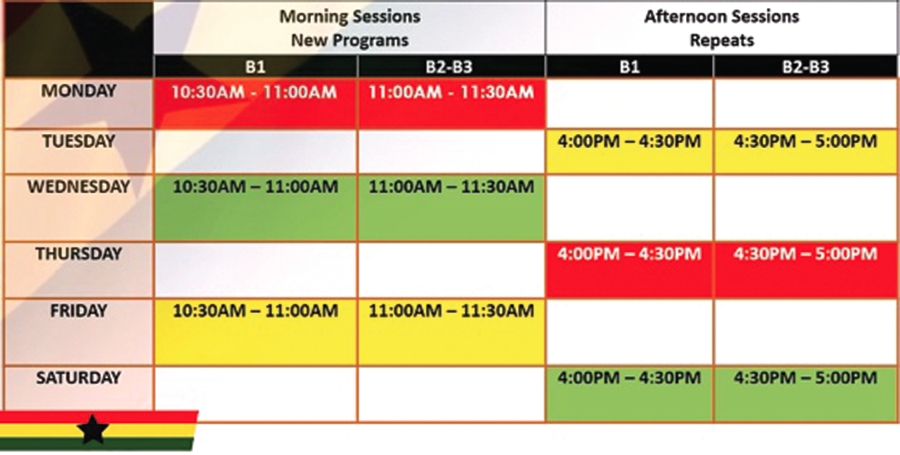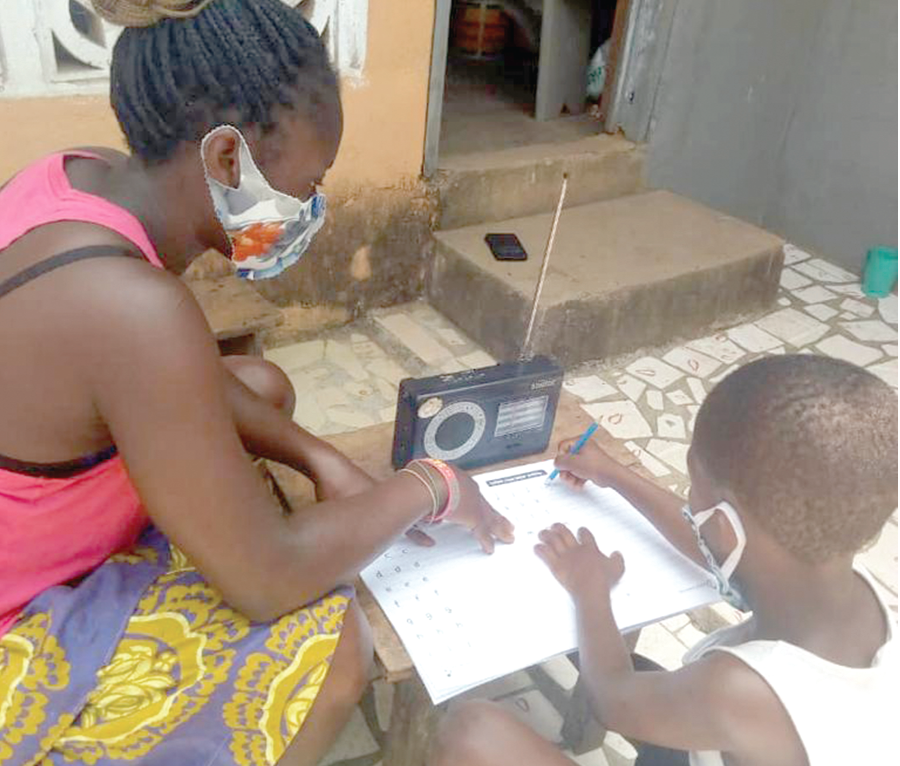Since March 2020 when Ghana had its share of the affliction occasioned by the deadly global pandemic, the COVID-19, over 3.4 million Kindergarten (KG Two) to Basic Four primary school pupils have found themselves out of school.
The outbreak of COVID-19 led to the closure of over 25,487 primary schools in the country, with children now unable to attend face-to-face instruction in a classroom environment.
And since management of education in the country could not immediately envisage when school would re-open, it was important to put in place an alternative learning programme to keep the children busy in some form of learning while at home.
The unfortunate thing is that the child cannot wait and so the outbreak of COVID-19 cannot be a barrier to the learning process.
Learning interventions
Thankfully, on June 15, 2020, after a successful launch of the Ghana Learning TV designed entirely for the upper primary to the secondary level, the Ministry of Education, with the generous support of the United States Agency for International Development (USAID) and the Ghana Broadcasting Corporation, launched the radio version.
Dubbed “Ghana Learning Radio Reading Programme”, the programme, which caters for school pupils between Basic One and Basic Three, aims at teaching children how to read while at home.
So far, all the 11 GES-approved Ghanaian language (Asante Twi, Akuapem Twi, Dagaare, Dagbani, Dangme, Ewe, Fante, Ga, Gonja, Kasem, Nzema) radio lessons now air mainly on Mondays and Wednesdays from 5 p.m. to 6 p.m.
To date, millions of worksheets have been distributed to all public school Basic One to Basic Three pupils at home, on a one-to-one basis, to support their learning at home.
USAID support
Since the launch on June 15, 2020, it has been a worthwhile venture and the USAID should feel vindicated pumping millions of Ghana Cedis into the programme.
The USA, through the USAID, has provided Ghana with almost $17 million to address immediate impacts of the COVID-19 by helping strengthen health systems and improve reading outcomes.
Owing to the pandemic, millions of primary school pupils are out of school and to address this challenge, the ministry and the USAID designed the national radio programme on reading.
The children are engaged in activities including storytelling, games and other interesting activities to help improve their reading, writing and imaginative skills.
The programme, which lived up to the intended expectation to engage parents, caregivers and students through daily broadcasts to support and improve reading among Ghana’s primary school pupils, the collaborators are already looking beyond COVID-19.
Even as the children return to school this year, the programme will continue to run to serve as a complementary opportunity for the them.
With very interactive and easy-to-follow reading lessons, the programme provides distance learning instruction in English and the 11 official Ghanaian languages of instruction for Kindergarten two through fourth-grade students.

Lessons
Lessons, which are adapted from USAID-supported instructional materials and validated by the National Council for Curriculum and Assessment (NaCCA), also include health and safety behaviour-change messaging focusing on hand washing and social distancing.
Additionally, the programme broadcasts child-protection messages to parents and caregivers to encourage homework supervision, family health and hygiene and the prevention of bullying, sexual assault and early pregnancy.
So since the launch, on Mondays, Wednesdays and Fridays, the GBC radio stations across the country broadcast one-hour reading instruction sessions from 10:30hours to 11:30hours and a repeat broadcast from 1600 to 1700 hours on Tuesdays, Thursdays and Saturdays.
Though not foolproof, the programme surely is useful as a stopgap measure to ensure that the pupils do not go rusty. It also serves as a way of sustaining their interest in school.
Excitements
Some of the stakeholders are excited about the programme so far. The Monitoring, Evaluation and Learning Officer (FOI) of the Ghana Education Service (GES) Headquarters, Accra, Mr Emmanuel Inkoom, believes that the programme “has come to further strengthen our system and we have a database of over 1.4 million parents and caregivers who can be targeted with various instant messages to support their wards and also give us feedback, especially during the closure of schools due to COVID-19.”
For Mr Bright Mensah, parent of a B3 pupil at the Rev. Alex Jones Memorial Methodist Primary School in the Cape Coast Metro in the Central Region, the programme was very useful, adding, “ I receive information through my phone to remind me to make my child listen to the radio. I am very happy about the support my child is getting from the radio programme which has also lessened the pressure on me.”
For Love Amenyah, a Primary One teacher of the LEKMA 5 and 9 Basic School at the Ledzokuku Municipal in the Greater Accra Region, she was not only excited to be part of the recording of the radio lessons, but happy that the USAID was bringing the intervention to support the many pupils at home due to the pandemic.
Source:www.graphic.com.gh


